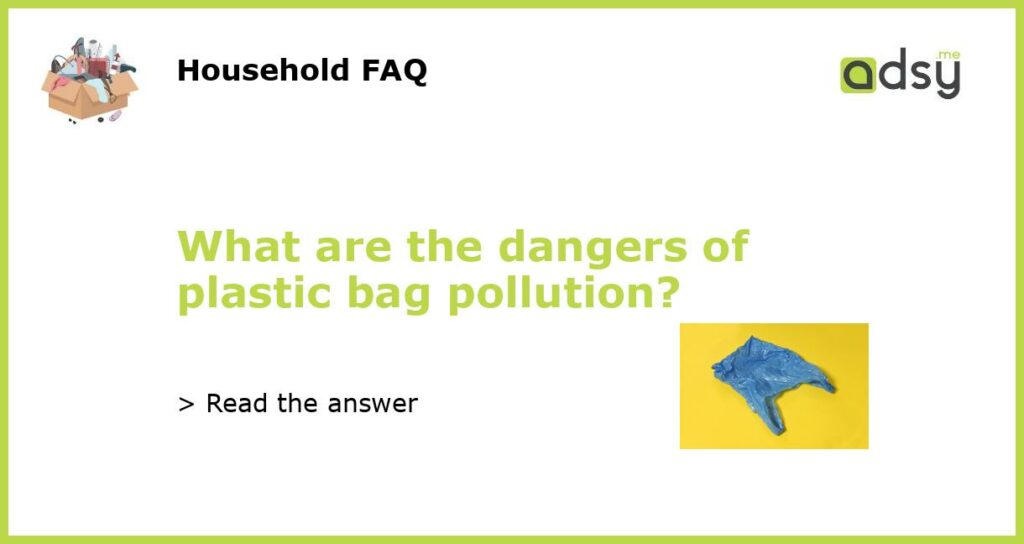The Dangers of Plastic Bag Pollution
Plastic bag pollution is a significant environmental problem that poses numerous dangers to our planet and wildlife. Plastic bags are not biodegradable and take hundreds of years to break down, resulting in long-lasting pollution. Here are the key dangers associated with plastic bag pollution:
Threat to Marine Life
Plastic bags that end up in oceans and water bodies pose a major threat to marine life. Sea turtles, dolphins, whales, and other marine animals mistake plastic bags for food and ingest them. This can lead to internal injuries, blockage of digestive tracts, and ultimately result in starvation or death. Additionally, marine animals can become entangled in plastic bags, causing them to drown or struggle to escape.
Contamination of Ecosystems
Plastic bags not only harm marine life but also contaminate ecosystems on land. When plastic bags are discarded improperly, they can end up in forests, rivers, and lakes, where they persist for years. The presence of plastic bags in natural environments disrupts ecosystems, affecting plants, animals, and microorganisms. The degradation of plastic releases toxic chemicals that can alter the balance of ecosystems and harm biodiversity.
Damage to Soil and Agriculture
When plastic bags are thrown away or inadequately managed, they can accumulate in agricultural fields and damage soil quality. Plastic bags prevent the flow of water and essential nutrients to plants, leading to reduced agricultural productivity. Soil contamination caused by plastic bag pollution can persist for a long time, affecting the fertility and health of the soil, and ultimately impacting food production.
Impacts on Human Health
Plastic bag pollution not only affects the environment but also poses risks to human health. When plastic bags break down, they release microplastics – tiny particles of plastic that can contaminate water sources and enter the food chain. Consuming food or water contaminated with microplastics can have adverse health effects, including reproductive issues, hormonal disruption, and an increased risk of cancer. Additionally, the chemicals used in the production of plastic bags can leach into food and beverages, leading to chemical exposure for humans.
Contribution to Climate Change
The production, use, and disposal of plastic bags contribute to climate change. Plastic bags are primarily made from fossil fuels, such as natural gas and oil. The extraction and processing of these fossil fuels release greenhouse gases, contributing to global warming. Furthermore, when plastic bags break down, they release methane, a potent greenhouse gas that further exacerbates climate change. By reducing plastic bag pollution, we can help mitigate the impacts of climate change.






